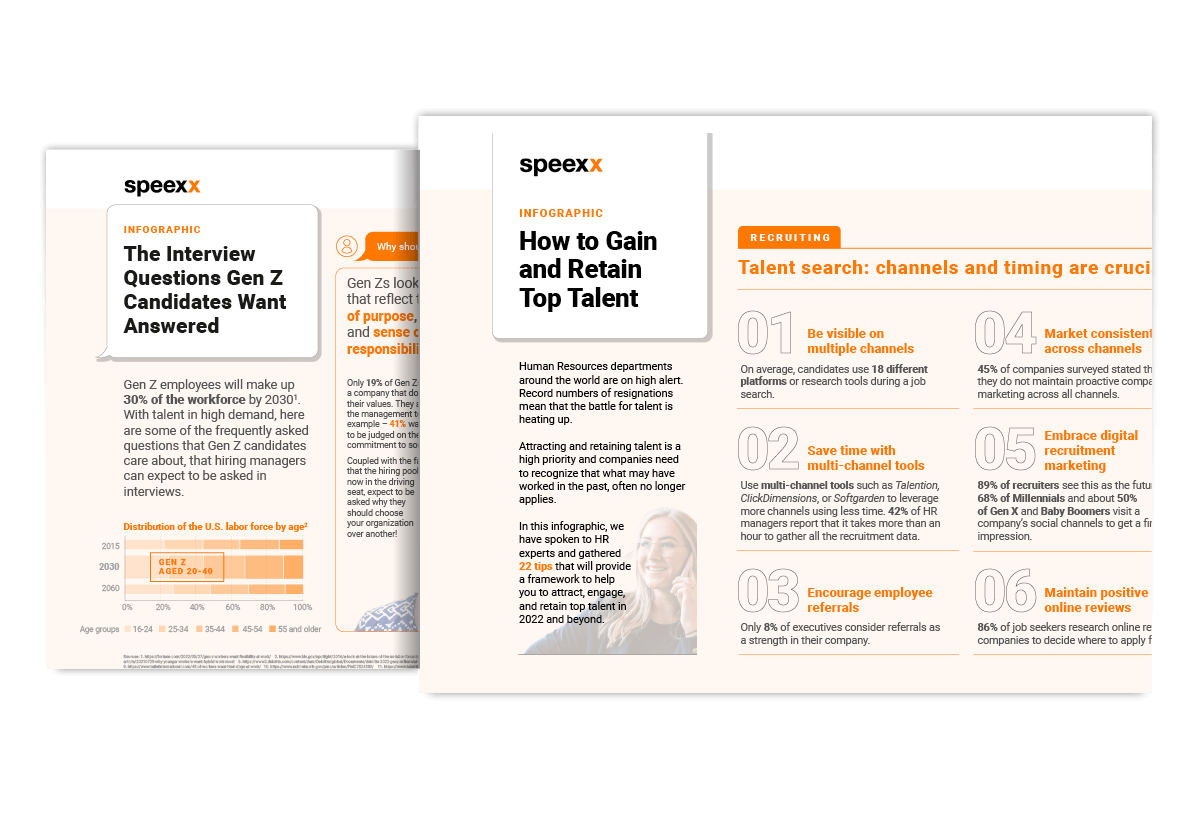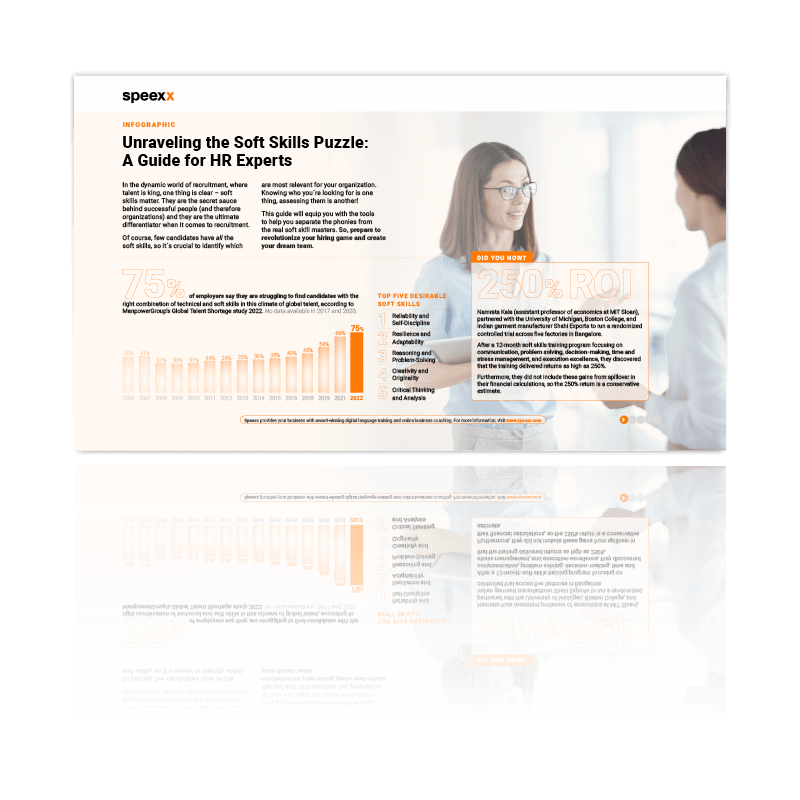As Generation Z – aka “Generation AI” – enters the job market, they are confronted with a rapidly changing landscape defined by technological advancements and global shifts. Currently aged between 18 and 25, this generation will be expected to master a skill set that goes way beyond traditional academic or technical knowledge. Their ability to adapt and thrive in this increasingly complex and ever-changing world depends on their mastery of both technology and key soft skills. Versatility will play a pivotal role in shaping success in a workplace characterized by continuous evolution within an ever more complex global landscape.

For employers and HR professionals, it’s essential to identify and develop the key competencies – both technical and human – that Generation AI needs to succeed. This article unpacks these critical skills and discusses how employers can effectively harness the new stream of talent for a mutually rewarding relationship in the currently evolving workplace.
Digital Literacy and Technological Proficiency
In today’s technology-driven workplace, digital proficiency has gone from nice-to-have to must–have. Young professionals entering the workforce are facing a transformed landscape where traditional paradigms are giving way to new structures that more aptly suit the current era. Hybrid models and digital platforms have revolutionized international collaboration. This dynamic workplace environment facilitates continuous on-the-job learning and personal growth, as employees are regularly exposed to new and diverse ideas, skills, and cultures. The incorporation of generative AI skills adds an additional layer of complexity to this evolving environment. The combination of such significant shifts requires a commitment to lifelong learning and the continual acquisition of evolving skill sets.
Dealing with Uncertainty
Flexible and digital-based working models, while offering numerous opportunities for growth and learning, also presents unique challenges. Among these is a noticeable increase in career-related anxiety among young professionals, particularly those from Generation AI.
John Morgan, of Lee Hecht Harrison (LHH), part of The Adecco Group opines: “Gen Z are starting their careers at a really tough time where there is a lack of overall personal connections and relationships because many of them are either not in the office, or else they are in but in a very semi regular way.”
The heightened levels of career-related anxiety observed in this age group stem not only from the rapidly changing skill sets, but also from the fact that this generation has joined the workforce during a period in which meaningful support is lacking.
LHH recently carried out a survey called the “Career Readiness Index” which encompasses 2,000 employees across different age groups in the U.S., U.K., and France; it revealed that 35% of Generation AI respondents felt they lacked control over their careers. Additionally, another 35% said that they were unable to effectively employ their existing skills in their current roles. Clearly employers must do more to support, develop, and harness the talent these young professionals have to offer.
Generation AI and the Skills Gap
The label Generation AI may, in fact, be unfair and misleading. Although they are digital natives, employees from this age group do not inherently possess the skills needed to use Artificial Intelligence (AI) tools at work. While their digital proficiency does, at least in theory, allow them to adapt more swiftly than previous generations, unlocking AI’s full potential and becoming experts in its utilization requires time, guidance, and practice.
Generation AI are, by nature, more open to exploring and using generative AI in the workplace, with many having prior experience of such technologies in an academic setting. This helps them to bridge knowledge gaps that stem from the reduced in-person interactions associated with today’s digital workplace. However, a skills gap still exists. As per a recent report by Adecco, 70% of the 30,000 workers surveyed across 23 countries already utilize generative AI at work, yet less than half of them receive proper training or guidance. In another report (“Work Re-imagined” by Ernst & Young, 2023) it was revealed that only 38% of employers currently utilize AI, with a mere 18% providing training to their workforce.
It is clear, therefore, that to avoid the misuse of generative AI, employers must establish clear guidelines and provide adequate training in order that their employees become responsible human co-pilots of AI.

Retain and nurture talent in your organization.
Being a Human Co-Pilot
Discernment and Critical Thinking
Inadequate on-the-job training can lead to a misuse of AI technology. Generative AI is still in its infancy and demands a certain level of expertise for effective usage to avoid errors, time wastage, bias, or underutilization of its capabilities. For now, at least, a human “co-pilot” with the right skills is essential for optimal performance and results.
At the Simon Business School, University of Rochester in New York, educators are taking proactive steps to ensure students are prepared to navigate the complexities of AI in the workplace. Mitch Lovett, Senior Associate Dean of Education and Innovation, highlights the importance of discernment in using AI: “One of the skills is understanding how you evaluate whether the AI can perform a task, and right now that requires a fair amount of expertise on the part of the person who’s using it.” This approach emphasizes not just the technical ability to use AI, but the critical thinking required to assess its applicability and reliability for specific tasks.
Students are taught to grasp the fundamentals of generative AI, employing it as a starting point for critical thinking, while bearing in mind AI technology’s imperfections. Lovett emphasizes that with the right training and experience, users of AI can accurately assess its limitations for specific tasks, experiment with effective prompts, verify facts and sources, and employ sound judgment to determine the value of the outcomes for a given task. Problem-solving is also a closely related component in this skill set; that is to say, being creative and innovative in the way they seek and find solutions.
It is self-evident, therefore, that Generation AI must combine technical AI proficiency with critical thinking, analysis, and ethical skills. There is a growing recognition among recruiters and employers of the importance of these key intellectual traits; the burden of responsibility being on them to successfully identify and refine these skills for optimal decision-making. In such an environment, it is no surprise that individuals who can discern correct solutions, challenge inaccuracies within AI algorithms, and mitigate cognitive bias are increasingly sought after. Those who successfully combine the skills of problem-solving and critical thinking will be well equipped to thrive even in the face of an uncertain future.
Data Ethics
Bias is a good example of one of the key flaws still exhibited by AI, stemming from the models and training data it relies on. Consequently, equipping young professionals with fundamental understanding and knowledge of generative AI can position employers to apply the technology effectively and evolve with its capabilities.
The conversation now centers on the importance of employees developing their base set of skills which enables them to question AI’s outputs and use critical thinking to confirm the accuracy of results. As AI takes over more routine tasks, individuals will not need to perform these tasks directly, but having a solid grasp on how AI arrives at these outcomes is crucial.
Organizations, therefore, need to be very careful not to confuse technical knowledge with AI mastery; a candidate must not only be able to generate effective prompts, but also have the right soft skills that make them an effective co-pilot capable of analyzing and fact-checking AI-generated results.
Resilience to Change, Lifelong Learning, and Adaptability
The pace of the modern world dictates that change will be the norm in the work-life of Generation AI. Therefore, a commitment to continuous learning, upskilling, and being adaptable will be fundamental. Generation AI must embrace a learning mindset, actively seeking new information, skills, and perspectives throughout their work lives. As industries evolve rapidly and new challenges arise, the ability to quickly acquire and apply knowledge will be a key determinant of success. In such an environment, the soft skill known as Change Resilience becomes ever more relevant as it enables employers and employees to grow together. Candidates and team members themselves must be apt to change and the acquisition of new skills; however, the onus, once again, is on businesses and organizations to establish a work culture that supports this by providing the necessary coaching to help their workforce stay adaptable, nimble, and resilient to change.
Communication Skills
Effective communication with colleagues has become increasingly crucial as teams are dispersed across continents, working on various platforms and using multiple languages. Strong communication skills, including multilingualism, leadership, and clear expression of ideas, are of heightened value as employers leverage technology to optimize work processes. Cultivating peer networks and refining communication and networking skills are vital aspects of career development for Generation Z.
John Morgan of LHH emphasizes the importance of interpersonal connections, stating, “Finding a peer group and honing your communication and networking skills is — as it always has been — critical in career development. However, it is particularly important for Gen Z right now, until we get clearer on what their return to work [in a traditional setting] actually looks like. This group has to go out of their way to make human, personal connections.”
Generation AI will need to show they are equally effective at communicating in the digital space as they are face-to-face; candidates who demonstrate these skills – especially those who are able to work in more than one language – will be at an even greater advantage.
Another must-have for success in an international context is cultural competency; that is to say – understanding and respecting diverse beliefs, customs, and perspectives. Global awareness equips individuals to navigate cross-cultural interactions and contribute to international collaborations.
As with all these skills, a commitment to training and upskilling must be central to employers’ overall strategy if they are to retain and nurture the fresh talent this generation brings with it.
Future-Proof Careers: The Power of Data Science, AI, and Soft Skills
While soft skills remain essential in the development of young professionals, AI’s increasing influence elevates the importance of data-related skills, which includes a broad understanding of machine learning, and proficiency in data visualization.
Currently, employers are actively seeking individuals with strong Python skills, the premier coding language for AI and machine learning. However, demand for Python expertise surpasses its supply, making it an essential skill for any Generation AI professional pursuing a career in technology-related fields.
Data visualization skills, utilizing tools like Microsoft’s Power BI, are becoming increasingly vital. This capability enables the conversion of complex data and analysis into visually compelling narratives, facilitating effective communication of insights and business intelligence. In this context, it is worth highlighting that even someone with excellent Python skills still needs to possess the right soft skills. Technical proficiency alone isn’t enough; the ability to communicate ideas, collaborate with others, and present findings effectively remains a crucial element of the evolving workplace.

Learn how to assess the potential of your talent force.
Soft Skills Training
Today, organizations recognize the importance of certain soft skills that were once considered innate traits. These skills are now understood to be teachable to anyone, leading employers to allocate significant resources to company-wide business coaching for their development. There are two categories of soft skills which tend to matter most. First are effective interpersonal skills, including conflict resolution, communication, emotional resilience, and mindfulness. These acquirable skills enable employees to navigate workplace complexities and diverse environments more effectively, collaborate seamlessly, and establish meaningful connections in the workplace. The other critical soft skill category is domain expertise, which is valued for the preservation and transfer of industry-specific knowledge from experienced staff to younger workers like Generation AI.
This shift towards upskilling existing talent opens up more options, allowing HR teams to build on what they already have, rather than always relying on recruitment to cover skill gaps. This attitude mirrors top sports managers’ approach: a football coach who is able to develop and nurture the qualities he needs in a player is less prone to paying exorbitant transfer fees to bring in “the finished article”. He puts himself in a strong position as, not only does his method give him more options, but it also implies greater control and more effective allocation of resources. This attitude reflects the dynamic nature of today’s workplace, where soft skills can now be cultivated just as technical ones are, helping to build a more adaptable and efficient workforce.
Furthermore, research conducted by the Harvard Business Review involving 1,700 companies worldwide revealed that organizations leading in human capital measures were four times more likely to achieve outstanding financial outcomes.
Cultural Competency and Global Awareness
Globalization has made the world more interconnected than ever before. To succeed in an international context, Generation AI must possess cultural competency, understanding and respecting diverse beliefs, customs, and perspectives. Global awareness equips individuals to navigate cross-cultural interactions and contribute to international collaborations.
Entrepreneurial Spirit Drives Innovation
The capacity for innovation and entrepreneurial thinking is relevant even within the non-startup environment. An entrepreneurial spirit denotes a willingness to embrace calculated risks, adaptability, and having a proactive approach towards innovation. Such a mindset is key to unlocking creativity and being resilient in the face of change or disruption. Furthermore, innovative thinkers are able to transform ideas into tangible outcomes, whether that be through launching new ventures or devising solutions to optimize processes. Again, it comes back to the capacity for critical thinking and independent problem solving.

Conclusion
As Generation AI begins to navigate the complexities of the modern workplace, the intertwining of technical competency with essential soft skills emerges as a pivotal foundation for success. The new generation must be AI-literate critical thinkers who also possess the interpersonal skills that enable effective communication and change resilience. No longer considered simply as personality traits, soft skills are now recognized as crucial competencies that can be developed through targeted business coaching. Employers, recognizing this shift, are increasingly investing in comprehensive business coaching programs to cultivate these abilities within their workforce. This dual focus not only prepares young professionals for the challenges ahead but also positions organizations to thrive in a competitive, ever-evolving global marketplace and contributes significantly to the bottom line. By creating a culture of continuous learning and adaptability, businesses can unlock the full potential of Generation AI, ensuring a future where technology and human ingenuity coalesce to create unparalleled opportunities for innovation and growth.
